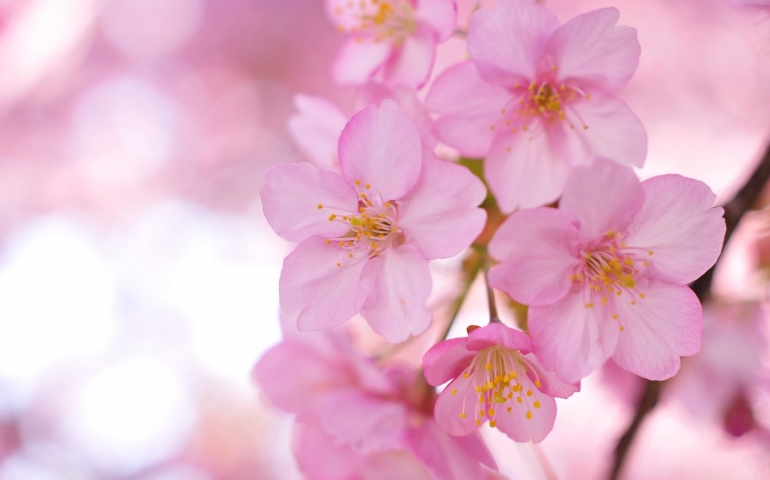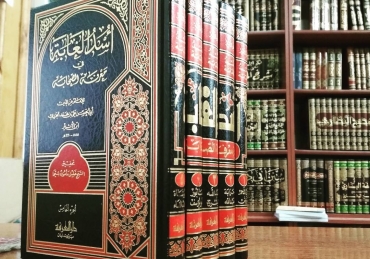The name Laiba
Question
I have heard in some speeches about Laiba (Laaiba) and the al-Ḥūr al-ʿĪn. What is the source for this and what does Laiba mean? Is it suitable for a baby girl’s name?
بسم الله الرحمن الرحیم
Answer
Imam Ibn Abī al-Dunyā (d. 281/894) transmits a narration from ʿAbdullāh ibn Masʿūd (d. 32/653) that he said, “Indeed, there is a ḥūr (hoor, an extremely fair-complexioned woman) in Jannah who is known as لعبة, all the ḥūrs of the Paradises are amazed at her, they place their hands on her shoulders and say, ‘Bliss for you O لعبة, if the seekers knew what (beauty) belongs you, they would strive.’ It is written in between her eyes: Whoever wishes to have someone like me, should act in accordance with the pleasure of my Lord, The Mighty and the Majestic.” There are two narrators in the chain of this transmission whose credentials are unknown to us. Therefore, we are unable to confirm its authenticity. Ḥāfiẓ Ibn al-Qayyim (d. 751/1350) has also cited this narration in one of his works without mentioning the source, it appears that his source is Imam Ibn Abī al-Dunyā.
There is another narration cited by Faqīh Abū al-Layth al-Samarqandī (d. 373/983) from the companion ʿAbdullāh ibn ʿAbbās (d. 68/687-8) who is reported to have said, “Indeed, there is a ḥūr in Jannah who is known as لعبة, she has been created from four things: Musk, Amber, Camphor and Saffron, and their mixture was kneaded with the water of life. All the ḥūrs adore her, if she were to spit in the ocean once, the ocean’s water would sweeten, it is written on her neck: Whoever wants to have someone like me, should act in in obedience to my Lord.” However, Faqīh Abū al-Layth has not mentioned the chain or source of this narration. Part of this narration has been cited by ʿAllāmah Abū ʿAbd Allah al-Qurṭubī (d. 671/1273) and Ḥāfiẓ Ibn al-Mulaqqin (d. 804/1401), however, it appears that they sourced it from Faqīh Abū al-Layth. Faqīh is a great ḥanafī jurist, however, his ḥadīth transmissions cannot always be relied upon. Ḥāfiẓ Dhahabī (d. 748/1348) mentions his use of fabricated narrations.
There is no doubt that in Jannah there will be beautiful gorgeous ḥūrs as mentioned in the Quran and authentic narrations.
Finally, this terms لعبة can be pronounced linguistically in three ways.
- لُعْبَة (Luʿbah) – this literally means a toy and in this context someone who the inhabitant of Jannah will play with.
- لُعَبَة (Luʿabah) – this means she is very playful.
- لَعْبَة (Laʿbah) – this has a similar meaning to the first. This is unlikely although possible.
Other assumed variations of this term are لَاعِبَة (Lāʿibah) which means female player, and لَائِبَة (Lāʾibah) which means the thirsty female. Both are commonly written as Laibah or Laaibah and feature on Muslim names lists. It should be noted that, if the aforementioned ḥadīth is authentic, the correct word would be لعبة not لاعبة. Either way, these are not suitable names for baby girls and they do not linguistically mean beautiful or the prettiest woman. People who keep this name usually pronounce it as لَائِبَة (Lāʾibah) which means thirsty, as mentioned above. Even if pronounced correctly, it is good for a spouse to be playful, however, this is a private matter which does not to be publicised in a name. Names have an impact on a person and therefore appropriate names should be chosen. There are many names of female companions and pious people that can be chosen instead.
قال ابن أبي الدنيا في صفة الجنة (٢٩٨): حدثنا الحسن بن يحيى بن كثير العنبري، حدثنا العلاء بن عبيد الله، عن موسى بن حصين، عن عيسى بن يونس، عن الأوزاعي، عن حسان بن عطية، عن ابن مسعود قال: إن في الجنة حوراء يقال لها اللعبة، كل حور الجنان يعجبن بها يضربن بأيديهن على كتفها ويقلن: طوبى لك يا لعبة. لو يعلم الطالبون لك لجدوا، بين عينيها مكتوب: من كان يبتغي أن يكون له مثلي فليعمل برضاء ربي عز وجل، انتهى. وفيه موسى بن حصين، لم أقف عليه، لم يذكره المزي في تهذيبه (٢٣/٦٧) في تلاميذ عيسى بن يونس. والراوي عنه العلاء بن عبيد الله لم أقف على ترجمة له، وذكره المزي (٦/٣٣٦) من مشايخ الحسن بن كثير العنبري. وأثر ابن مسعود هذا نقله ابن القيم في حادي الأرواح (ص ٢٣٥)، والظاهر أن مرجعه هو ابن أبي الدنيا۔
وقال الفقيه أبو الليث السمرقندي في تنبيه الغافلين (ص ٧٧): وعن ابن عباس رضي الله عنهما أنه قال: إن في الجنة حوراء يقال لها لعبة، خلقت من أربعة أشياء من المسك والعنبر والكافور والزعفران، وعجن طينها بماء الحيوان، فقال لها العزيز: كوني فكانت، وجميع الحور عشاق لها، ولو بزقت في البحر بزقة تعذب ماء البحر، مكتوب على نحرها: من أحب أن يكون له مثلي فليعمل بطاعة ربي، انتهى. لم يذكر الفقيه سنده، ولا يعتمد على مجرد نقله. قال الذهبي في السير (١٦/٣٢٣) في ترجمته: وتروج عليه الأحاديث الموضوعة، انتهى. وقال أبو عبد الله القرطبي في التذكرة (ص ٩٨٦): قال ابن عباس: إن في الجنة حوراء يقال لها لعبة لو بزقت في البحر لعذب ماء البحر كله، انتهى. ونحوه في التوضيح لابن الملقن (١٧/٣٦٠)۔
وقال أبو طاهر المخلص: حدثنا أبو محمد عبيد الله بن عبد الرحمن بن محمد بن عيسى السكري، حدثنا أحمد بن يوسف بن خالد التغلبي، حدثنا أحمد بن أبي الحواري، حدثنا عبد الله بن السري قال: جاء عطاء السليمي إلى مالك بن دينار، فقال له: يا مالك، بلغني أن في الجنة حوراء يقال لها لعبة، يجتمع إليها الحور، فيبدين عن بعض محاسنها، فيقلن: يا لعبة، طوبى للطالبين لو يرون منك مثل الذي نرى، قال: فكمد شوقا إليها أربعين سنة. ورواه ابن عساكر في تاريخه (٥٦/٤٢٢) من طريق أبي طاهر المخلص۔
قال الجوهري في الصحاح (١/٢١٩): واللعبة بالضم: لعبة الشطرنج والنرد. وكل ملعوب به فهو لعبة، لأنه اسم. ومنه قولهم: اقعد حتى أفرغ من هذه اللعبة. قال ثعلب: من هذه اللعبة بالفتح أجود، لأنه أراد المرة الواحدة من اللعب، انتهى. ونحوه في لسان العرب (١/٧٤١). وقال الزبيدي في تاج العروس (٤/٢٠٩): (ولعبة) بضم فسكون (و) لُعَبة (كهمزة)، وفرق بينهما الصاغاني فقال: لعبة كهمزة: كثير اللعب، ولعبة بالضم: يلعب به، انتهى۔
ثم الضبط المشتهر بين الواعظين والقصاص هو اللاعبة أو اللائبة، ولم أجدهما. ومعنى اللاعبة ظاهر، من اللعب. أما اللائبة فمعناها عطشى، قال في الصحاح (١/٢٢١): لاب يلوب لوبا ولوبانا ولوابا، أي عطش، فهو لائب والجمع لؤوب، مثل شاهد وشهود، انتهى. وكذا في لسان العرب (١/٧٤٥)۔
Allah knows best
Yusuf Shabbir
29 Dhū al-Qaʿdah 2019 / 31 July 2019
Approved by: Mufti Shabbir Ahmad and Mufti Muhammad Tahir







Keeping names: Rahman and Hasib